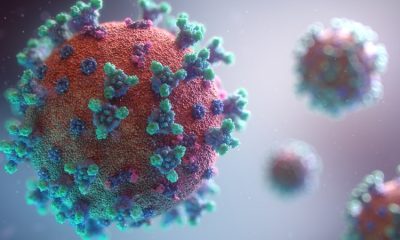- Depression in Seniors
- How Depression Can Look Like Dementia
- Memory Impairments in Depression
- Executive Function Deficits in Depression
- Speech and Language Deficits
- Diagnosing Pseudodementia from Depression
- Treating Depression in Seniors
Depression in Seniors
Getting older can be a tough thing to go through. Your body starts showing signs of age, and it can be harder than it used to be to do the things you enjoy.
Seniors are often at an elevated risk of depression. This can include people who didn’t have a prior history of mood disorders, like general anxiety or major depressive disorder, when they were younger. Risk factors for depression still aren’t completely understood, but can include genetics, changes in the brain related to age, and stressful life events, like losing a loved one or having a close call with something like a heart attack or a stroke. Even insomnia can make you more likely to develop serious depression.
Depression involves a complex interplay of emotional factors, cognitive factors (the way you think about yourself and your surroundings), and neurophysiological changes in brain chemistry. Problems with mood-related neurotransmitters like seratonin, dopamine, and norepinephrine are one of the root causes of depression.

People with depression also fall into cognitive cycles that aren’t healthy, often involving unnecessarily self-critical thoughts that persist. They’re often triggered by emotional states, but they also make those emotional states even worse, creating maladaptive feedback cycles.
Depression isn’t just feeling sad, it’s a serious disorder with real health consequences. Being depressed can greatly increase a person’s risk of morbidity and mortality. It impairs your ability to function physically and socially.
While people with a prior history of depression are at greater risk of depressive episodes during old age, an estimated 50% of cases of geriatric major depressive disorder are a new condition that the person has never had previously. This is partly due to structural features of the aging brain increasing susceptibility in people who may be genetically predisoposed to some extent, but had never developed the disorder previously when they were younger.
Clinically significant depression symptoms may be present in up to 15% of the elderly population.
One of the distinctive features of late onset depression in old age, is its unusually pronounced effect on mental function. Depression in general can make it hard to think clearly, to focus, and to remember things, but this is especially true in people over 55.
Depression in seniors can create a syndrome known as “pseudodementia.” The person appears to be developing dementia symptoms, but the cause is actually the depression itself. When diagnosing neurological conditions that cause dementia, psychiatric depression is an important thing to rule out before making a diagnosis of something like Alzheimer’s.

How Depression Can Look Like Dementia
The pronounced deficits in memory and cognition caused by depression can look an awful lot like dementia. Fortunately, depression is very treatable, and unlike dementia with organic causes, these mental deficits are reversible.
Depression causes negative changes in the following areas:
- Mood and affect. A depressed person may be more irritable than usual, or may be emotionally labile.
- Arousal, attention, and concentration. Depression can make you feel tired and “not all there.” Your response time may be slowed, and you might have trouble concentrating.
- Perception. Depression can change the way you see and experience the world around you.
- Specific mental functions. Depression may make it hard to remember things, or it can affect your ability to use and understand language.
- Personality. A person’s behavior and demeanor can change. Someone who used to be very outgoing may become withdrawn, or someone who’s usually levelheaded may be unusually irritable.
Memory Impairments in Depression
Seniors with depression often struggle with impairments in two main types of memory: episodic memory, and learning.
Episodic memory is your memory of events that have happened during your life. Depression affects the temporal lobe of the brain, along with the hippocampus — two areas heavily involved in memory. There are also deficits in explicit verbal and visual memory. However, implicit memory — memory you recall unconsciously, rather than consciously — is generally spared.
These deficits are noticeable, but are generally milder than those found in Alzheimer’s disease. In comparative studies, subjects with Alzheimer’s forget newly learned information much more quickly than patients with depression.
Executive Function Deficits in Depression
Along with difficulty remembering new information, people with depression can also exhibit cognitive issues related to the executive function. Based largely in the frontal cortex of the brain, executive functions include things like decision making and task shifting.
Studies have shown that elders with clinical depression have trouble shifting efficiently from one set of tasks to another. This ties into further issues with the speed at which the person processes information. Depression can create a sensation of “brain fog,” where you feel like you can’t think as quickly or as clearly as usual. Research has confirmed that these deficits do present in depressed patients, and they do perform more poorly on standard neuropsychiatric tests designed to evaluate these functions, such as the Wisconsin Card Sorting Test.
Speech and Language Deficits
In some cases, seniors with depression can also have difficulties with speech and language function. They perform more poorly on neuropsychiatric tests than normal patients, though not nearly as poorly as people with Alzheimer’s disease.
However, these problems are thought to be part of a broader problem with psychomotor processing speed, rather than something specific to language functions themselves. In contrast, patients with Alzheimer’s disease and resulting dementia do have specific language impairments in many cases.
Diagnosing Pseudodementia from Depression
Depressive pseudodementia can be distinguished from other kinds of dementia, such as Alzheimer’s, through neuropsychiatric testing and neuroimaging studies. Both physiological differences, and differences in performance on tests, have been demonstrated that can help in diagnosing pseudodementia.

Treating Depression in Seniors
The memory and cognitive impairments associated with depression in older adults are reversible with proper treatment. The prognosis is usually much better than that of people with organic brain disease, brain lesions due to stroke, or other neurological causes of dementia symptoms.
There are quite a few different types of evidence-based treatments for depression and related mood disorders. This can include pharmacotherapy, using antidepressants such as SSRIs (Zoloft, Prozac), SNRIs (Celexa, Effexor), NDRIs (Wellbutrin), and other types of chemical compounds that help correct neurochemical imbalances.
Cognitive behavioral therapy is also very effective for depression. These talk therapy variants help patients understand and change maladaptive ways of thinking, feeling, and behaving, which are characteristic of depression.





